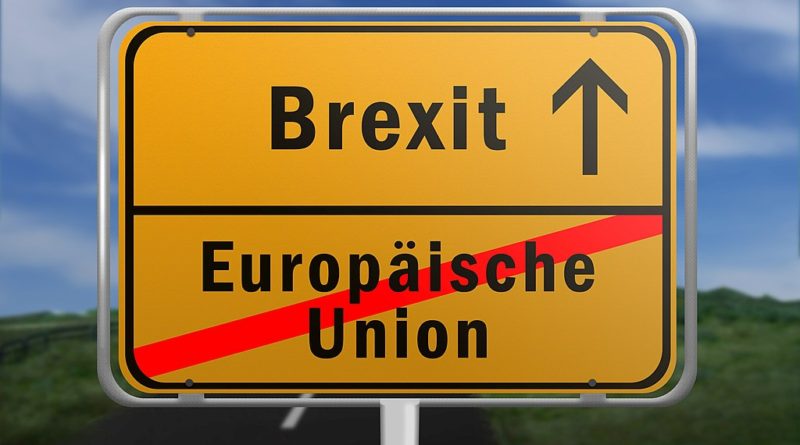The Brexit deal and your rights: 20 things you need to know
The UK and the EU have managed to find a compromise on a new Brexit deal. The agreement is an international treaty setting the terms of the UK withdrawal from the European Union.
The main changes compared to the deal negotiated by Theresa May (which was rejected by parliament) concern customs arrangements for Northern Ireland and a weakened promise to maintain alignment on workers, consumers and environmental standards in the future. The rest has not changed. So what does the deal say about your rights? Here is a recap.
1. The withdrawal agreement covers the rights of a definite group of people. It concerns specifically EU nationals living in the UK and British nationals living elsewhere in the EU before the end of the transition period. It also covers frontier workers (people residing in a country and working in another) impacted by Brexit. People who will move between the UK and the EU after the transition period are not covered by this deal: their rights will be determined by the future relationship between the UK and the EU, or by national immigration rules.
2. The deal also covers family members of EU nationals in the UK and British nationals in the EU. In particular, it includes spouses and registered partners, parents, grandparents, children, grandchildren and persons in a durable relationship, as long as the relationship existed before the end of the transition period. Children born after that date are protected if both parents are covered by the deal, if one parent is covered and the other is a national of the host state, or if one parent is covered by the deal and has the custody of the child.
3. Nothing changes at least until 31 December 2020. The agreement comes into force when the UK effectively leaves the EU. But there will be a transition period during which EU rules will continue to apply in Britain, even if the country will no longer be represented in the EU institutions. This means that freedom of movement between the UK and the EU will continue during that period. The transition will last until 31 December 2020 and can be extended until 2022 (but there will be no transition in the event of no-deal Brexit).
4. The deal protects most of the existing rights. People covered by the agreement can continue to live, study, work and set up business in their country of residence under existing rules and with the same benefits of nationals of that country. Current provisions in terms of social security, e.g. access to healthcare, aggregation of pensions, pension uprating and other benefits will be preserved, and so will be the right to non-discrimination.
5. Yes, that includes reciprocal healthcare. Persons covered by the agreement can continue accessing healthcare in another EU country based on the S1 form or the European Health Insurance Card (EHIC). Those who have requested the authorisation for planned treatments in another EU state before the end of the transition will be able to complete them.
6. But not all existing rights are safeguarded. The automatic right to return after leaving the country of residence for a long period of time, which is always available under free movement rules, will be lost after Brexit. British nationals in the EU will also lose the automatic right to move to work, study and set up business in another EU state to that where they reside, the recognition of professional qualifications beyond their host country or the country where they work, the right to return to the UK with non-UK spouses under the more favourable EU regime, the right to vote in European elections and in municipal elections in the country of residence unless the host state allows it to non-EU residents, the right to initiate European Citizens Initiatives (petitions asking the European Commission to propose legislation on a certain matter). EU nationals in the UK lose the automatic right to family reunion for relationships starting after the transition period and the right to return to the country of origin with non-EU family members under EU law (because the UK will become a “third country”).
7. An important gap: voting rights. The withdrawal agreement does not protect the right to vote in local elections, which is granted to EU citizens who move across the EU. This is because UK nationals will no longer be considered EU citizens after Brexit. The British government intends to maintain this right for EU nationals and is negotiating bilateral agreements with EU countries in this regard. So far, agreements have been signed with Spain, Portugal and Luxembourg. Irish, Cypriots and Maltese citizens can continue voting in the UK under other arrangements.
8. There are requirements to be met for the new residence status. Mirroring EU rules, 5 years of continuous residence are necessary for EU nationals in the UK and British nationals elsewhere in the EU to obtain the new residence status. People who have lived in the respective countries for less than that by the end of the transition period, and their family members, can stay and build up the 5 years. Citizens covered by the agreement also have to apply or request the documents proving their new status: EU nationals in the UK have to apply for the digital “EU settlement scheme” (settled status) and British residents in the EU can apply or register, depending on the country they live in, to obtain residence documents.
9. The agreement is quite detailed on how things should work. The agreement says that applicants have the right “to be granted the residence status and the document evidencing that status” issued free of charge or “for a charge not exceeding that imposed on citizens or nationals of the host state for the issuing of similar documents.” The new residence document should state that it has been issued in accordance with the Brexit agreement. The deadline for submitting the application should not be less than 6 months from the end of the transition period and it should be extended automatically by 1 year in case of technical problems preventing people to be registered. If someone does not meet the deadline, says the text, the authorities should assess the circumstances and allow the application “within a reasonable further period of time if there are reasonable grounds.” Applicants should also have access to judicial and administrative redress procedures if refused. In case of abuse or fraud, the status can be denied or terminated.
10. A passport may still be needed to enter the country. No visa will be required to people covered by the agreement. But 5 years after the end of the transition period national identity cards may no longer be accepted to cross the border if they do not include a chip with biometric identification.
11. Family members should get free visa. The agreement specifies that host countries must facilitate family members who join their partners or relatives after the end of the transition period when an entry visa is required. This should be issued free of charge and on the basis of an accelerated procedure.
12. The new residence status can be lost. Once acquired, the new residence status can be lost if the person leaves the country for a continuous period of 5 years (in the event of no-deal Brexit, the period is 2 years in the UK and one year in the EU under rules on the long term resident status of non-EU nationals).
13. Authorities will check whether something goes wrong. The European Commission will monitor the implementation of the agreement in the EU, while the UK will establish an independent authority to fulfill this role. This body will have the power to receive complaints from EU citizens and their families, conduct inquiries and bring legal action before UK courts to seek remedy. The EU and the UK will also set up a joint committee to supervise the overall implementation of the Brexit agreement. Under these provisions, a special committee on citizens’ rights will be established too. The joint committee may decide to abolish the independent national authority not earlier than 8 years after the end of the transition period.
14. National provisions inconsistent or incompatible with the agreement “shall be disapplied”, the text specifies.
15. The European Court of Justice will continue to have jurisdiction in the UK regarding the citizens’ rights section of the agreement for a period of 8 years after the end of the transition period.
16. Citizens from certain countries can rely on other arrangements. Irish nationals in the UK, and vice versa, are also covered by the separate arrangements of the Common Travel Area, which guarantees free movement. Citizens from Iceland, Liechtenstein, Norway and Switzerland who reside in the UK, and vice versa, can rely on separate deals negotiated to protect their rights regardless of the Brexit outcome. These countries are not part of the EU but apply EU’s free movement rules. The withdrawal agreement allows the coordination of social security rights across all these countries.
17. What happens next. The agreement has to be approved by the British and the European parliaments. When the deal is approved, the UK and EU countries have to adjust national laws to reflect its content.
18. What about people not covered by the deal? The withdrawal agreement contains certain provisions affecting EU or UK nationals who may not have residence rights in the respective territories at present. For example, it guarantees pension rights accrued by people who moved between the UK and the EU in the past but have now returned to the country of origin or live elsewhere. Citizens’ rights will also come back in the negotiation of the future EU-UK trade agreement. The European Council guidelines for trade talks with the UK say: “The future partnership should include ambitious provisions on movement of natural persons, based on full reciprocity and non-discrimination among member states, and related areas such as coordination of social security and recognition of professional qualifications. In this context, options for judicial cooperation in matrimonial, parental responsibility and other related matters could be explored, taking into account that the UK will be a third country outside Schengen and that such cooperation would require strong safeguards to ensure full respect of fundamental rights.”
19. What happens if the deal is not approved. The UK and EU countries could decide to provide unilateral guarantees (although these won’t cover transnational rights such as pension coordination and access to healthcare across borders) or to negotiate bilateral deals. Campaigners argue that the best option would be to ring-fence what has been agreed so far. In any event, the EU will bring these issues back to the table at any time talks would resume on a Brexit deal.
20. What no one tells you. The withdrawal agreement does not prevent countries from being more generous than what it provides for.
The full text of the withdrawal agreement is available here.
Claudia Delpero © all rights reserved.
Photo by Christoph Scholz [CC BY-SA 2.0] via Wikimedia Commons.
Europe Street News is an online magazine covering citizens’ rights in Europe. We are fully independent and we are committed to providing factual, accurate and reliable information. Our recent survey has shown that about two thirds of the people impacted by Brexit lack information about their rights and awareness is generally low for anything related to EU rights. We believe citizens’ rights are at the core of democracy and information about these topics should be accessible to all. This is why our website and newsletter are available for free. Please consider making a contribution so we can grow and expand our coverage.




